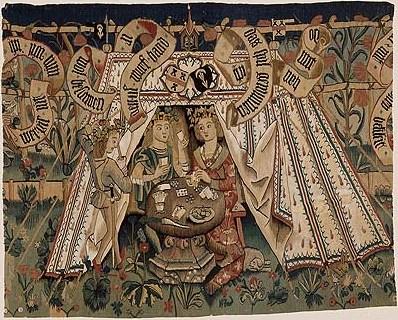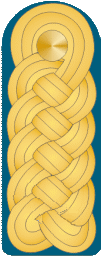|
Carl Freiherr Von Seckendorff
Prussian general of division Carl Freiherr von Seckendorff was one of the founders of Scouting in Germany, along with Maximilian Bayer and Elise von Hopffgarten. He was the first "Reichsfeldmeister" (''fieldleader of the realm'') of the Deutscher Pfadfinderbund after World War I. In February 1912, Bayer, von Seckendorff, Elise von Hopffgarten, and Alexander Lion authored "Pfadfinderbuch für junge Mädchen" (A Scout Book for Girls). In its effort to make young women more independent, it was free from patriotic or religious sentiment, and contained references to the women's movement. Family Seckendorff was born into the Seckendorff family, an old noble family of Franconia. He had three daughters: Marianne, Ilse and Erika. After World War I With the end of World War I, the Scouting movement in Germany strove to reintroduce a general structure, and reorganized the Pfadfinderbund in 1918. The first years of the newly formed Bund were marked by a recurring conflict about th ... [...More Info...] [...Related Items...] OR: [Wikipedia] [Google] [Baidu] |
Prussia
Prussia, , Old Prussian: ''Prūsa'' or ''Prūsija'' was a German state on the southeast coast of the Baltic Sea. It formed the German Empire under Prussian rule when it united the German states in 1871. It was ''de facto'' dissolved by an emergency decree transferring powers of the Prussian government to German Chancellor Franz von Papen in 1932 and ''de jure'' by an Allied decree in 1947. For centuries, the House of Hohenzollern ruled Prussia, expanding its size with the Prussian Army. Prussia, with its capital at Königsberg and then, when it became the Kingdom of Prussia in 1701, Berlin, decisively shaped the history of Germany. In 1871, Prussian Minister-President Otto von Bismarck united most German principalities into the German Empire under his leadership, although this was considered to be a " Lesser Germany" because Austria and Switzerland were not included. In November 1918, the monarchies were abolished and the nobility lost its political power durin ... [...More Info...] [...Related Items...] OR: [Wikipedia] [Google] [Baidu] |
Franconia
Franconia (german: Franken, ; Franconian dialect: ''Franggn'' ; bar, Frankn) is a region of Germany, characterised by its culture and Franconian dialect (German: ''Fränkisch''). The three administrative regions of Lower, Middle and Upper Franconia (largest cities, respectively: Würzburg, Nuremberg and Bamberg) in the State of Bavaria are part of the cultural region of Franconia, as are the adjacent Franconian-speaking South Thuringia, south of the Rennsteig ridge (largest city: Suhl), Heilbronn-Franconia (largest city: Schwäbisch Hall) in the state of Baden-Württemberg, and small parts of the state of Hesse. Those parts of the Vogtland lying in the state of Saxony (largest city: Plauen) are sometimes regarded as Franconian as well, because the Vogtlandian dialects are mostly East Franconian. The inhabitants of Saxon Vogtland, however, mostly do not consider themselves as Franconian. On the other hand, the inhabitants of the Hessian-speaking parts of Lower ... [...More Info...] [...Related Items...] OR: [Wikipedia] [Google] [Baidu] |
Scouting And Guiding In Germany
The Scout movement in Germany consists of about 150 different associations and federations with about 260,000 Scouts and Guides. History Scouting in Germany started in 1909. After World War I, German Scouting became involved with the German Youth Movement, of which the Wandervogel was a part. Another group that, while short-lived, was influential on later German Scouting, was the Deutsche Jungenschaft vom 1.11.1929 founded by Eberhard Koebel; some specifics of German Scouting derive from Koebel's group. German Scouting flourished until 1934-35, when nearly all associations were closed and their members had to join the Hitler Youth. In West Germany and West Berlin, Scouting was reestablished after 1945, but it was banned in East Germany until 1990 in favor of the Thälmann Pioneers and the Free German Youth. Today it is present in all parts of the unified Federal Republic of Germany. Associations As mentioned above, today about 150 Scouting associations and federations exist i ... [...More Info...] [...Related Items...] OR: [Wikipedia] [Google] [Baidu] |
Junker
Junker ( da, Junker, german: Junker, nl, Jonkheer, en, Yunker, no, Junker, sv, Junker ka, იუნკერი (Iunkeri)) is a noble honorific, derived from Middle High German ''Juncherre'', meaning "young nobleman"Duden; Meaning of Junker, in German/ref> or otherwise "young lord" (derivation of ''jung'' and ''Herr''). The term is traditionally used throughout the German-speaking, Dutch-speaking and Scandinavian-speaking parts of Europe. It was also used in the Russian Empire due to Baltic German influence, up until the Russian Revolution. The term is currently still in use by the Georgian Defense Forces for student officers of the National Defence Academy. Honorific title In Brandenburg, the ''Junker'' was originally one of the members of the higher ''Edelfrei'' ( immediate) nobility without or before the accolade. It evolved to a general denotation of a young or lesser noble, sometimes politically insignificant, understood as "country squire". Martin Luther disguised ... [...More Info...] [...Related Items...] OR: [Wikipedia] [Google] [Baidu] |
Eisenach
Eisenach () is a town in Thuringia, Germany with 42,000 inhabitants, located west of Erfurt, southeast of Kassel and northeast of Frankfurt. It is the main urban centre of western Thuringia and bordering northeastern Hessian regions, situated near the former Inner German border. A major attraction is Wartburg castle, which has been a UNESCO World Heritage Site since 1999. Eisenach was an early capital of Thuringia in the 12th and 13th centuries. St. Elizabeth lived at the court of the Ludowingians here between 1211 and 1228. Later, Martin Luther came to Eisenach and translated the Bible into German. In 1685, Johann Sebastian Bach was born here. During the early modern period, Eisenach was a residence of the Ernestine Wettins and was visited by numerous representatives of Weimar classicism like Johann Wolfgang Goethe. In 1869, the SDAP, one of the two precursors of the Social Democratic Party of Germany (SPD) was founded in Eisenach. Car production is an importa ... [...More Info...] [...Related Items...] OR: [Wikipedia] [Google] [Baidu] |
Wandervogel
''Wandervogel'' (plural: ''Wandervögel''; English: "Wandering Bird") is the name adopted by a popular movement of German youth groups from 1896 to 1933, who protested against industrialization by going to hike in the country and commune with nature in the woods. Drawing influence from medieval wandering scholars, their ethos was to revive old Teutonic values, with a strong emphasis on German nationalism. According to historians, a major contribution of the ''Wandervögel'' was the revival of folk songs in wider German society. The movement was divided into three main national groups: the ''Alt-Wandervogel'', the ''Wandervogel eingetragener Verein'' (WVEV) and the ''Jung-Wandervogel''. While the two first ones were generally respectful of traditions (family, the military, the school), the ''Jung-Wandervogel'' was more defiant and closer to revolutionary ideas. Contrary to scouting organizations, Wandervögel had spontaneously emerged outside of authority controls, and recruited ... [...More Info...] [...Related Items...] OR: [Wikipedia] [Google] [Baidu] |
World War I
World War I (28 July 1914 11 November 1918), often abbreviated as WWI, was List of wars and anthropogenic disasters by death toll, one of the deadliest global conflicts in history. Belligerents included much of Europe, the Russian Empire, the United States, and the Ottoman Empire, with fighting occurring throughout Europe, the Middle East, Africa, the Pacific Ocean, Pacific, and parts of Asia. An estimated 9 million soldiers were killed in combat, plus another 23 million wounded, while 5 million civilians died as a result of military action, hunger, and disease. Millions more died in Genocides in history (World War I through World War II), genocides within the Ottoman Empire and in the Spanish flu, 1918 influenza pandemic, which was exacerbated by the movement of combatants during the war. Prior to 1914, the European great powers were divided between the Triple Entente (comprising French Third Republic, France, Russia, and British Empire, Britain) and the Triple A ... [...More Info...] [...Related Items...] OR: [Wikipedia] [Google] [Baidu] |
House Of Seckendorff
The House of Seckendorff (also: Seckendorf) is the name of an old and prolific Franconian noble family. According to historian Werner Wagenhöfer, the Seckendorff family is the most researched family of the low nobility in Franconia along with the Guttenberg and Bibra families. Historical holdings * From 13th century to now Obernzenn, Blaues and Rotes Schloss * to now: Schloss Unternzenn * ? - ? Schloss Unteraltenbernheim * 1317–1782 Castle and village Langenfeld (Mittelfranken) and Ullstadt * 1347–1375 Oberndorf bei Möhrendorf * Since 1361 Schnodsenbach * 1361–1379 Monheim * 1369–1518 (ca.) Neuendettelsau, about 1403 division between the Seckendorf and the Vestenberg family * 1395–1500 (ca.) Rittergut Obersteinbach bei Neustadt/Aisch (mit Frankfurt, Langenfeld, Lachheim, Roßbach und Stübach) * before 1417–1503 Burg Hiltpoltstein in the county of Forchheim * 1422–1447 Rieterschloss in Kornburg * 1444–1453 Burg Reicheneck by Happurg * 1448–1452 Fürer ... [...More Info...] [...Related Items...] OR: [Wikipedia] [Google] [Baidu] |
General Of Division
Divisional general is a general officer rank who commands an army division. The rank originates from the French (Revolutionary) System, and is used by a number of countries. The rank is above a brigade general, and normally below an army corps general. The rank is mostly used in countries where it is used as a modern alternative to a previous older rank of major-general or lieutenant-general. Specific countries Brazil The Brazilian rank ''general-de-divisão'' translates literally as "general of division", and is used by the army. This rank is equivalent to lieutenant-general. The air force equivalent is ''major-brigadeiro''(literally "major-brigadier"). The navy equivalent is ''vice-almirante'' (literally, vice-admiral) Chile The Chilean rank ''general de división'' translates literally as "general of division", and is used by the army. This rank is equivalent to lieutenant-general. The air force equivalent is ''general de aviación'' (literally "aviation general"). Thes ... [...More Info...] [...Related Items...] OR: [Wikipedia] [Google] [Baidu] |
Women's Movement
The feminist movement (also known as the women's movement, or feminism) refers to a series of social movements and political campaigns for radical and liberal reforms on women's issues created by the inequality between men and women. Such issues are women's liberation, reproductive rights, domestic violence, maternity leave, equal pay, women's suffrage, sexual harassment, and sexual violence. The movement's priorities have expanded since its beginning in the 1800s, and vary among nations and communities. Priorities range from opposition to female genital mutilation in one country, to opposition to the glass ceiling in another. Feminism in parts of the Western world has been an ongoing movement since the turn of the century. During its inception, feminism has gone through a series of four high moments termed Waves. The First-wave feminism was oriented around the station of middle- or upper-class white women and involved suffrage and political equality, education, righ ... [...More Info...] [...Related Items...] OR: [Wikipedia] [Google] [Baidu] |
Deutscher Pfadfinderbund
Deutscher is a German surname. Notable people with the surname include: *Alma Deutscher, British musician and composer *Drafi Deutscher, German singer and composer *Guy Deutscher (linguist) *Guy Deutscher (physicist) *Isaac Deutscher, British journalist, historian and political activist *Tamara Deutscher, British writer and editor Fictional characters * Deutscher, a character in the short story "A Sound of Thunder" by Ray Bradbury See also *Deucher, Ohio *Deutsch (other) *German (other) German(s) may refer to: * Germany (of or related to) **Germania (historical use) * Germans, citizens of Germany, people of German ancestry, or native speakers of the German language ** For citizens of Germany, see also German nationality law **Ger ... {{surname, Deutscher German-language surnames Jewish surnames ... [...More Info...] [...Related Items...] OR: [Wikipedia] [Google] [Baidu] |





